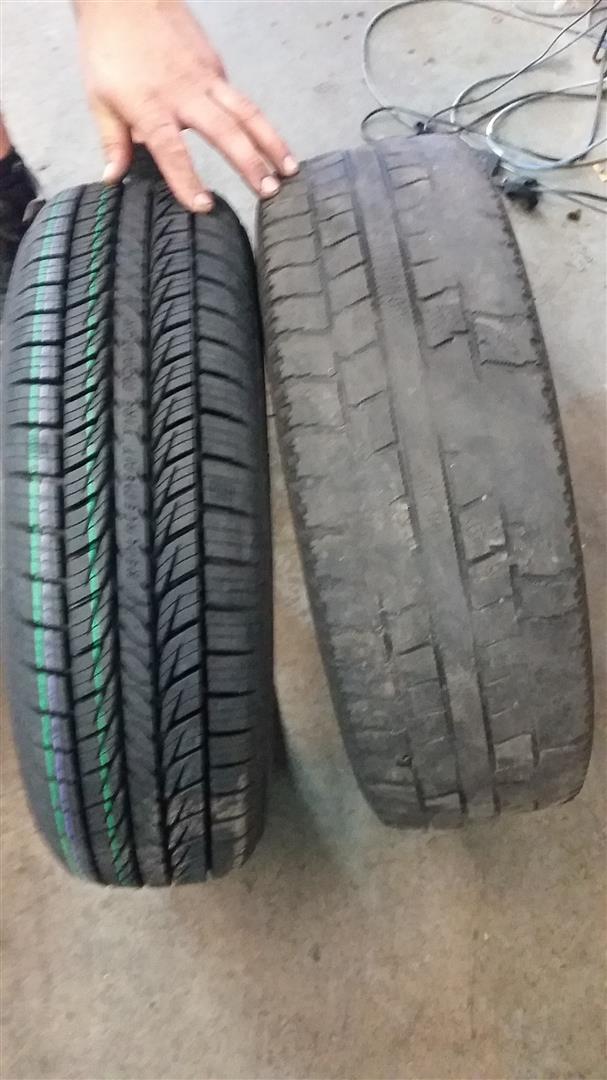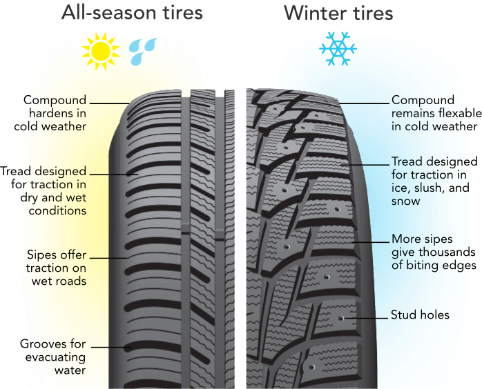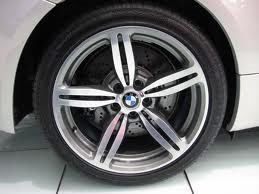Posted on 8/17/2023

Common tire problems are something almost every car owner universally has dealt with in one way or another. Many drivers dealing with tire problems for the very first time feel overwhelmed by the many possible explanations as to why their vehicle's wheels might be malfunctioning. In this article we will give you a comprehensive guide for diagnosing & fixing many common tire problems you may come across when driving on the road. Identifying The Problem: When identifying whether your cars tires are malfunctioning or not-- many people will state it will be self explanatory just based on how it feels driving the car. Although this may seem simple in theory-- identifying exactly what is happening with your wheels is essential in expediting the diagnosing process by ruling out other possible explanations & focusing on one specific issue at hand. This means being aware of many common tire problem symptoms-- such ... read more
Posted on 4/25/2018

Summer or Winter Tires vs. All Season Tires: Which tires would be the best for my car? This is a question we get quite often at DJ Foreign Auto. It may come as a surprise to you, but we believe it is beneficial to get a pair of summer tires and winter tires. In the following blog, we at DJ Foreign Auto will provide you with the pros and cons of summer tires, including handling, temperature ranges and how summer tires manage heat. We also cover the appropriate weather conditions for each type of tire. What Makes a Summer Tire a Summer Tire? Summer tires, also known as performance tires, are called that for a reason. Performance tires are invented to produce excellent dry and wet traction along with precise handling. They are intended to be used during warm summer months, or all year in regions that don’t get a true winter (unlike us lucky folk up north). Why Summer Tires Perform Better in Heat and Rain ... read more
Posted on 9/22/2014

Tweet You should check your Tire Pressure at least monthly, according to manufacturers. Having correct Tire Pressure gives you better fuel efficiency, and also maintains vehicle safety and stability. Tires complete the essential link between your vehicle's suspension and the road, and having under-inflated or over-inflated tires can compromise your car's stability, as well as its ability to corner and brake effectively. High Tire Pressure: If Tire Pressure is too high, less of the tire is touching the road. So instead of gripping the road, your tires will be bouncing off the road, leading to uneven tire wear, a bumpy ride, poor traction and longer stopping distances. Low Tire Pressure: If Tire Pressure is too low, too much of the tire surface is touching the ... read more